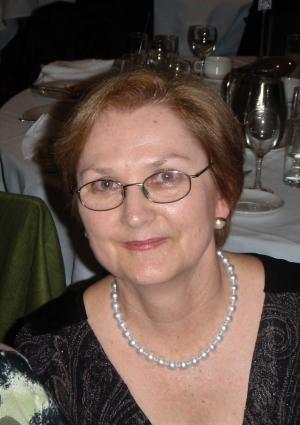
The highest-achieving student graduating as a Doctor of Physiotherapy at Bond University will now receive the Nancy Low Choy Memorial Award for Academic Excellence.
The award - which consists of the Nancy Low Choy medal, a certificate and a $1000 cash prize - honours Bond University’s former Head of Physiotherapy.
The late Professor Low Choy served as Head of Physiotherapy at Bond University between 2008 and 2012.
She was pivotal in the development of the university’s groundbreaking entry-level Doctor of Physiotherapy program and negotiated the final accreditation of Australia’s first fully accredited Doctor of Physiotherapy degree.
The Nancy Low Choy Memorial Award will be presented annually, in perpetuity, at the June graduation ceremony.
Nancy Low Choy's husband of nearly 50 years, Emeritus Professor Darryl Low Choy, said his wife had graduated at a time when physiotherapists were not considered first-contact medical professionals and could only treat patients who had been referred by a doctor.
Her determination that physiotherapy be classed as a medical profession that was accessible by anyone led to her to accept the role at Bond University that would revolutionise education for physiotherapists.
“It was the first degree of its kind in Australia, it was a controversial proposal and there was pushback within the educational world against that approach,” he said.
“So Nancy was under immense pressure, not only to revamp the school with this program at its core, but also to convince the hierarchy of the profession to formally acknowledge the qualifications of the graduates.
“I frequently receive emails from students that came into contact with Nancy and the most common sentiment is that their time with Nancy at Bond changed their life.’’
Professor Low Choy's legacy in the Australian physiotherapy community spanned 50 years across clinical practice, education and research.
Her career was cut short in 2016 when she was diagnosed with an aggressive form of brain cancer requiring immediate intensive treatment.
“Nancy was always a passionate researcher and believed the future of physiotherapy lay in specialisation and that could only be done by higher education,” Emeritus Professor Darryl Low Choy said.
“Our daughters and I decided that we would start some prizes to honour her legacy and to encourage graduates to continue to explore new areas within the field of physiotherapy.
“That’s what Nancy would have wanted.”
Bond University’s Head of Physiotherapy, Professor Wayne Hing, said Professor Low Choy was a highly respected health practitioner and a trailblazer for physiotherapy students.
"Nancy was one of the most influential and supportive leaders in physiotherapy in Australia and was instrumental in finalising accreditation of Australia’s first fully accredited Doctor of Physiotherapy in Australia here at Bond University,” he said.
"In honour of Nancy's contribution to physiotherapy, Bond University is proud to establish the Nancy Low Choy Memorial Award for Academic Excellence in Physiotherapy.’’